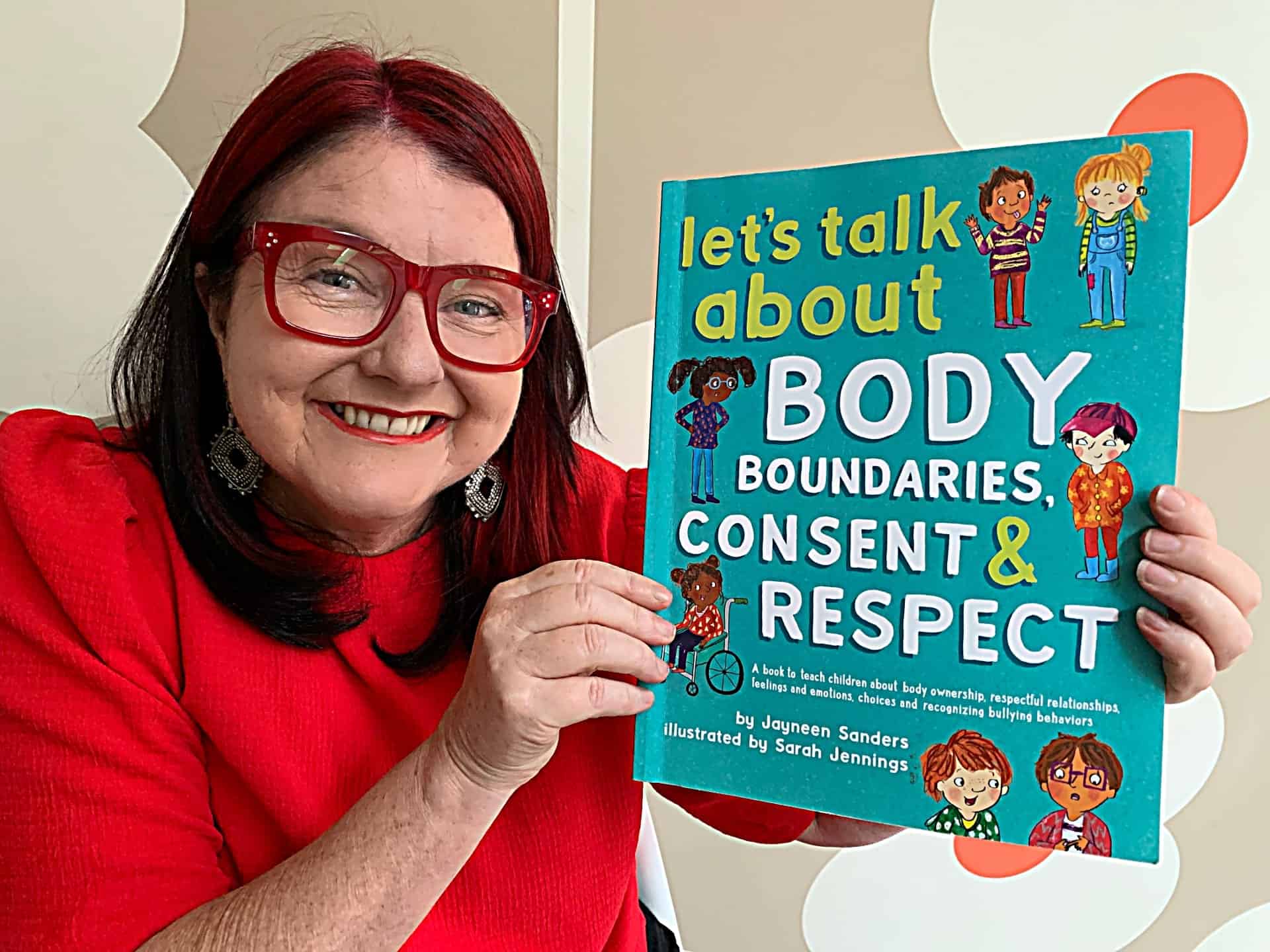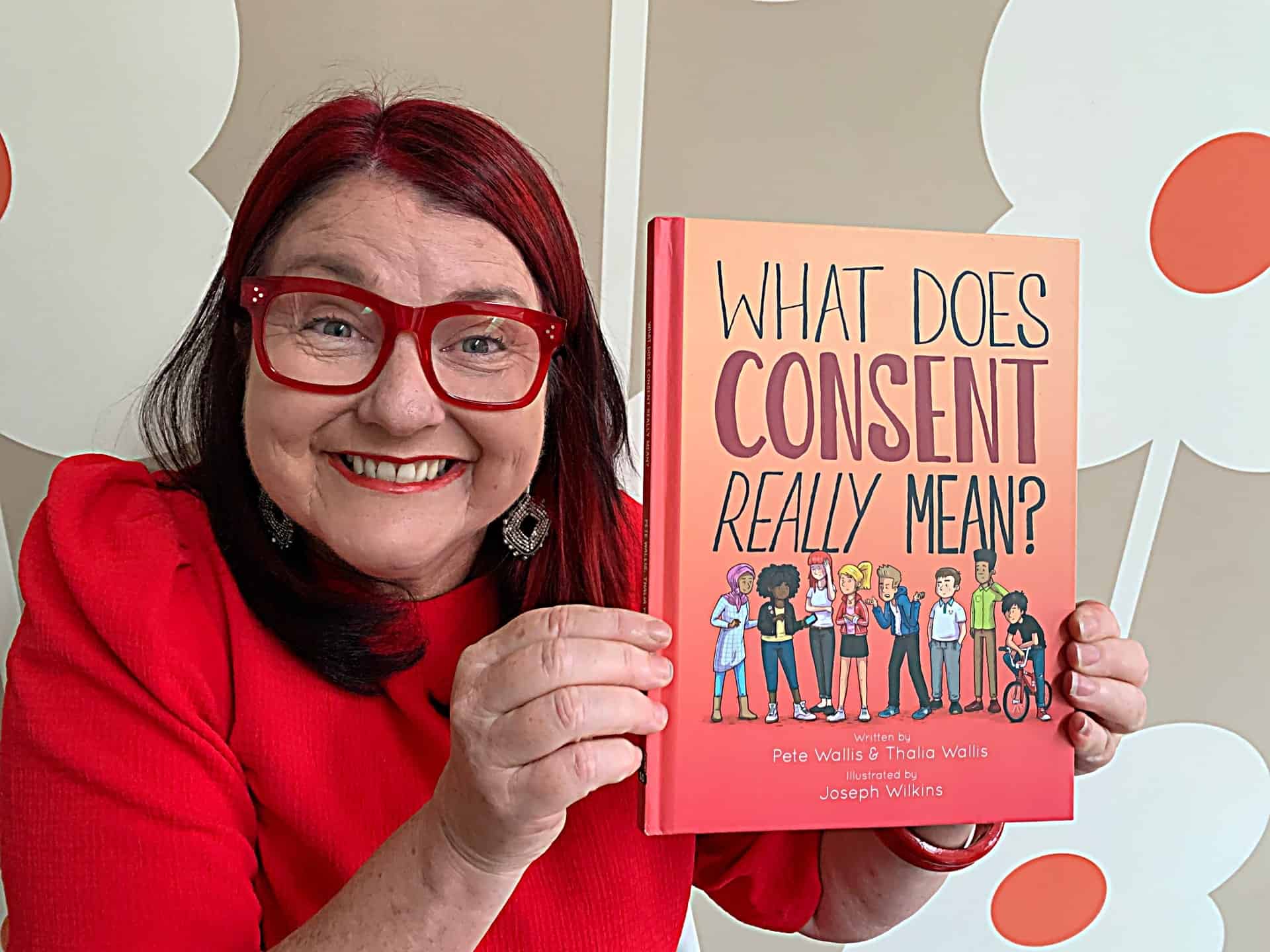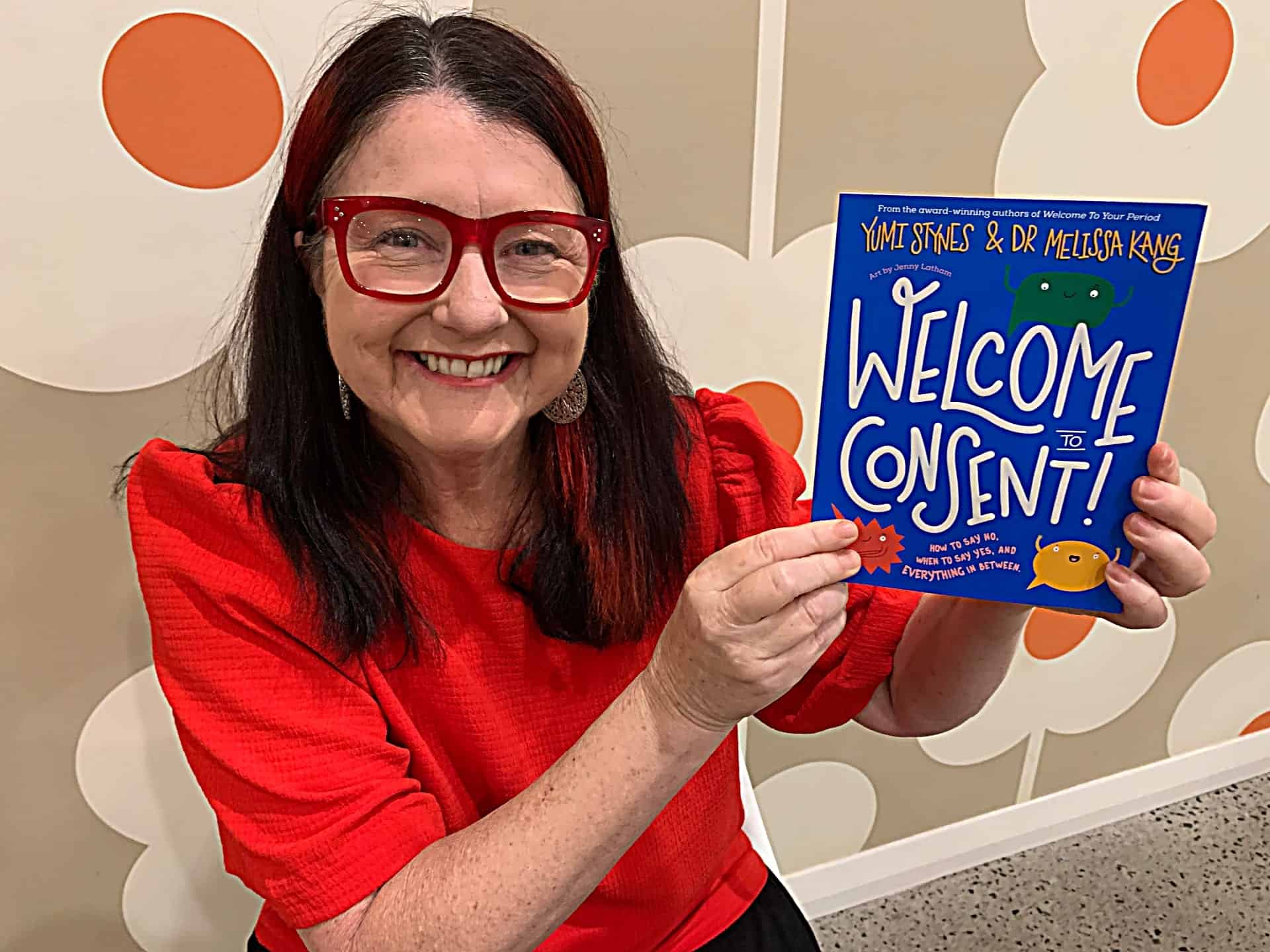‘Are you going to be talking about consent with my child?’ I often get asked this question by anxious parents. Often behind this question is a sense of fear and misconception that teaching consent is only about ‘sex’, when in fact it’s about having healthy relationships in every area of life and that includes the internet.
What Does Consent Mean?
The definition of ‘consent’ is ‘ to give permission for something’. As many of us know – it’s not consent if there is pressure, manipulation, threat or force.
Do you realise that consent means that our kids learn about all of these things?
(take a big breath because there are a lot of them…. …and you might like to add your own.).
Boundaries, being specific and informed, power, equality, pleasure, our bodies, feelings, respect, pressure, empathy, coercion, the law, rejection, a certain and clear ‘yes’, bodily autonomy, body signals, being assertive, checking again, self-defence, affection, courage, questions, empathy, resilience, negotiation, being media literate, listening, relationships, difficult situations, disappointment, verbal and non-verbal cues and a safety network. Now that’s impossible to learn about in just ‘one talk’.
No wonder we say that consent is a lifelong practice that takes practice! Learning about consent is important because learning about these things is important for us all.
Learning About Consent for Kids
It’s also important to remember that… consent should be:
Voluntary
freely given or it’s not consent.
Mutual
everyone needs to give permission otherwise it should not happen.
Ongoing
permission needs to be given not just once, but every time.
Informed
permission can only be given when you know what it’s for.
Reversible
a person is allowed to change their mind even if they have already given permission.
Certain and clear
it’s only a yes when it is certain and clear -otherwise it’s a no.
What learning about consent means for our kids is that they grow up to be kind, empathetic, resilient, respectful, honest humans that value their own bodies and have healthy and safe relationships. Isn’t this what we all want for our kids?
So, let’s listen, learn and open our lives up to change by making a ‘consent resolution’ to be consent mindful and active within our families and teach our kids in the way we model our lives before them.
How to Practise Consent in Your Family?
Books About Consent
I’ve reviewed many books about consent and you can find all my book reviews on this page (click here), or you can start exploring one of the three books highlighted below.

Let's Talk About Body Boundaries, Consent & Respect
Click here to read my book review

What Does Consent Really Mean?
Click here to read my book review

Welcome to Consent
Click here to read my book review



